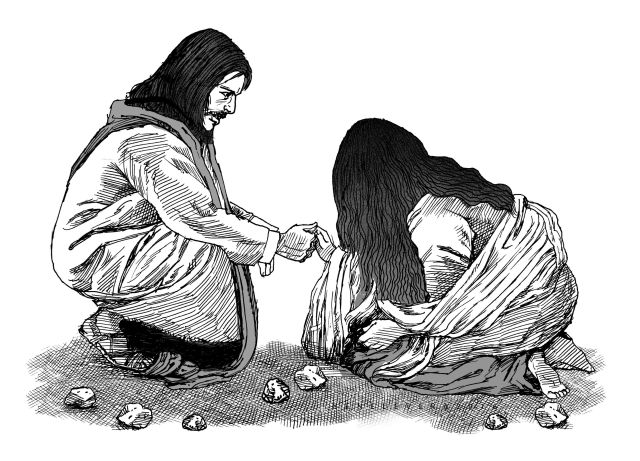Of the unusual short stories that I have read, I must include “The Lottery” by Shirley Jackson at the top. It gained the reputation of “one of the most famous short stories in the history of American literature.”
It tells of a small farming village that yearly held a ritual known as “the lottery.” The folk considered this tradition as crucial to their having an abundant harvest.
They often quoted an old proverb – “Lottery in June, corn be heavy soon.”
That year the lottery fell on the 27th of June. People met the day with both excitement and anxiety. At the square, the children began to gather stones as the adult folk assembled for the event. Talk circulated about some neighboring villages that were planning to do away with the ritual, a move which the folk regarded as anti-progress, dismissing it with a comment, “They might as well go back to living in caves.”
The ritual centered on a black box, which contained a list of all the families in the village and paper slips, which were prepared and put inside the box the night before. At ten o’clock in the morning, the lottery began. The heads of the households drew a slip each. Bill Hutchinson’s slip had a black mark, which meant that the choice fell on his family. Next, came the turn of the Hutchinson household to draw, and in this all members of the family, notwithstanding the age, participated. This time, Bill Hutchinson’s wife, Tessie, got the marked slip. In line with tradition, the villagers surrounded and stoned Tessie, who kept complaining about the unfairness of the raffle until she died.
The story received a negative response after it appeared in the New Yorker in 1948. Readers cancelled their subscriptions, sent hate mail to Shirley Jackson, and demanded an explanation of the story. In response, Jackson wrote: “Explaining just what I had hoped the story to say is very difficult. I suppose, I hoped, by setting a particularly brutal ancient rite in the present and in my own village to shock the story’s readers with a graphic dramatization of the pointless violence and general inhumanity in their own lives.”
The story conjures up an incident narrated in the Gospel of John, about a woman caught in the act of adultery, and brought by the scribes and the Pharisees before Jesus, who posed this question to him, “Teacher, this woman was caught in the very act of committing adultery. Now in the law, Moses commanded us to stone such women. So what do you say?” John writes that Jesus bent down and began to write on the ground with his finger, and then, when the scribes and Pharisees insisted on an answer, straightened up and said to them, “Let the one among you who is without sin be the first to throw a stone at her.” John added that the crowd went away one by one, beginning with the elders. When left alone with the woman, Jesus said to her, “Woman, where are they? Has no one condemned you?” She replied, “No one, sir.” Then Jesus said, “Neither do I condemn you. Go, and from now on do not sin any more.”
This account illustrates the nature of God’s mercy, for which St. Augustine’s “Hate the sin and not the sinner” might fit as rule of thumb.
Jackson might have written “The Lottery” for its shock value, but it raises a lot of questions, which we need not go into now. Like the rest of the readers, I find disturbing the villagers’ utter lack of compassion for the unlucky choice for stoning that year, Tessie Hutchinson. She did not expressly ask for mercy, which plea, however, we can deduce from her continuous protest that her husband Bill did not have enough time to make the draw.
Might not the village, although fictitious, serve as a microcosm of a world without God, or a proper understanding of God, who is Mercy and Love himself? In such a setting, man might feel compassion for others but will be at a loss to find a convincing reason for it. What value did Mrs. Hutchinson have except as a means of securing a bumper crop? Did her life in itself have any worth? Unless we bring God into the equation, we would never find the answer. How can we say that all men are created equal if we deny that there is a Creator?
As the anthropologist Paul Farmer said, “The idea that some lives matter less is the root of all that is wrong with the world.”
Disclaimer: The comments uploaded on this site do not necessarily represent or reflect the views of management and owner of Cebudailynews. We reserve the right to exclude comments that we deem to be inconsistent with our editorial standards.

